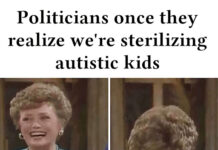Last week, the Seventh Circuit Court of Appeals upheld Indiana’s new law protecting children from harmful puberty blockers, hormone treatments, and irreversible mutilating surgeries. This is the third Appeals Court to allow such a law to remain in effect. The Seventh Circuit joins the Sixth and Eleventh Circuits which have already validated similar laws in Kentucky and Tennessee, and Alabama and Florida, respectively.
The ruling comes as the U.S. Supreme Court will hear an appeal challenging Tennessee’s law on December 4, 2024. A decision is expected by June 2025 which could determine whether all such state laws in the nation can be enforced.
A three-judge panel ruled 2-1 to fully dissolve a lower court’s injunction which had blocked parts of Indiana’s SEA 480 pertaining to puberty blockers and hormones. The decision allows the state to completely enforce the law. Shortly after the law was passed in April 2023 amid a wave of similar legislation in other states, a group of parents with gender-confused children, along with a private-practice physician, sued Indiana to preserve access to these procedures citing First Amendment and Equal Protection claims. However, the Seventh Circuit’s ruling rejected those arguments and built on its previous February 2024 decision to let the law stay in effect.
The Court affirmed that Indiana’s legislature created a “duly enacted law” that does not infringe on any fundamental right and does not discriminate based on sex or gender identity.
Circuit Judge Michael Brennan, who authored the majority opinion, cited the Supreme Court’s Dobbs decision regarding abortion by stating that access to specific and questionable medical procedures “is not a fundamental right.” He also found that Indiana’s SEA 480 does not discriminate for it blocks these “novel” and experimental procedures equally for boys and girls.
“Indiana’s voters have decided, through their representatives, legislative and executive, that medical interventions are too risky and novel to be safe treatments for children with gender dysphoria,” wrote Judge Brennan. “Further, as with sex, there is no evidence that SEA 480 is a pretext designed to discriminate against [gender confused] people. The law allows mental health care…and does not prohibit treatment focused on non-medical affirmation of the individual’s gender identity. It is focused on the medically induced part of a gender transition, which is the part of the transitioning process Indiana believes is too dangerous and novel to be left unregulated.”
The Seventh Circuit noted that protecting children from new and heavily challenged medical treatment is a “reasonable” and “legitimate end” for the state, and that three “fellow” circuit courts had reached the “same conclusion” that these laws do not violate Due Process nor Equal Protection laws.
- Alabama/Florida: In August 2023, the U.S. Eleventh Circuit Court of Appeals also ruled 3-0 that Alabama could protect children from medical mutilation while the case continues at the district court level. In August 2024, a different three-judge panel ruled 2-1 that Florida’s similar law could take immediate effect while litigation continues. Both decisions focused on upholding the legitimate will and authority of elected legislatures to protect children.
- Kentucky/Tennessee: In September 2023, the Sixth Circuit Court of Appeals ruled 2-1 that both states could enforce their respective bans on puberty blockers, hormones, and medical mutilating surgeries. The Court also determined these new medical procedures are not “deeply rooted in our history and traditions” and thus are not “beyond the democratic process to regulate.” The federal government has appealed this decision to the U.S. Supreme Court.
Judge Brennan concluded, “Appellees ask us to constitutionalize and thus take from Indiana the power to regulate a new and heavily debated medical treatment with unknown risks. If we hasten to set one side of the debate into constitutional stone, we will prevent Indiana from responding to tomorrow’s insights. Our Constitution is not so quick to act. By design, it provides a solution to just a few difficult questions and leaves the rest to the people.”
Liberty Counsel’s Founder and Chairman Mat Staver said, “There is no fundamental right to subject children to dangerous drugs and irreversible, experimental surgeries. However, talk therapy is a free speech right protected by the First Amendment, and allows a counselor to help a client who struggles with unwanted desires, behaviors, or gender confusion. The Seventh Circuit has rightly ruled that Indiana is free to protect children from the harmful interventions of gender ideology that has devastated many lives.”
For more information about state laws protecting children from gender ideology, visit Liberty Counsel’s website here.
















